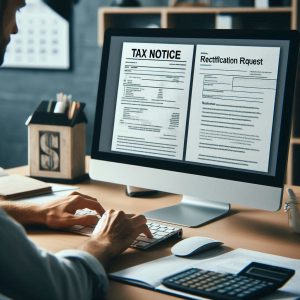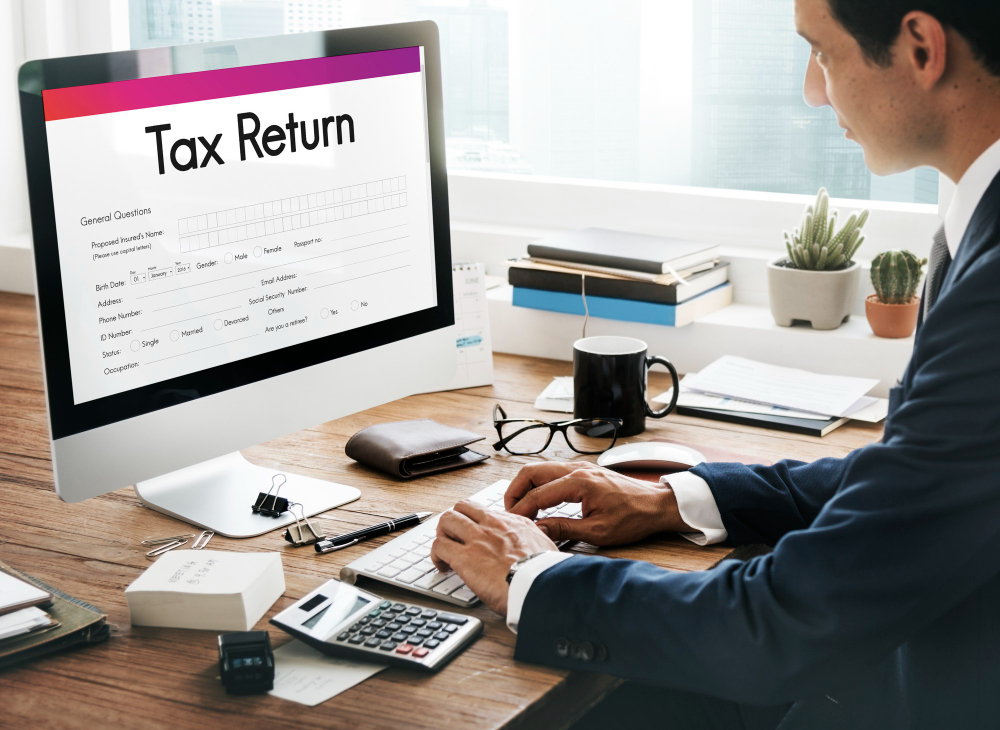When it comes to taxes, there are numerous sections, subsections, and rules that can often feel overwhelming. One such critical section is Section 156 of the Income Tax Act. If you’ve recently received a notice under this section, don’t panic. Instead, let’s break it down together and understand what it means, what you need to do, and how you can handle it smoothly.
In this article, we will discuss about...
What is a Notice Under Section 156 of the Income Tax Act?
First things first, let’s demystify what a notice under Section 156 is all about. Essentially, this notice is a demand notice. The Income Tax Department issues it when there’s an outstanding amount you need to pay. This could be due to various reasons, such as discrepancies found during an assessment or reassessment of your tax returns.
The notice outlines the amount you owe, including the reasons behind this demand. It’s crucial to read this notice carefully and understand every aspect of it, as ignoring it can lead to further complications.
Consult CA Arun Tiwari for more information at 📞 8080088288 or cs@aktassociates.com
Why Might You Receive This Notice?
You might be wondering, “Why did I receive this notice?” Well, there are several scenarios in which the Income Tax Department might issue a notice under Section 156:
1. Assessment and Reassessment: If there’s a discrepancy between the tax you paid and what the department calculates you owe, you’ll receive a notice.
2. TDS (Tax Deducted at Source) Mismatch: Sometimes, there might be a mismatch between the TDS claimed by you and the records held by the department.
3. Undisclosed Income: If during the assessment, it’s found that you have not disclosed some sources of income, the department will demand the tax on that income.
4. Disallowance of Deductions or Exemptions: If certain deductions or exemptions you claimed are disallowed, the resultant tax will be demanded through this notice.
What Should You Do When You Receive This Notice?
Receiving a demand notice can be stressful, but the key is to stay calm and take systematic steps to address it. Here’s a step-by-step guide on what you should do:
Step 1: Review the Notice Carefully
The first step is to thoroughly read the notice. Understand the exact amount being demanded and the reasons mentioned. Check for any calculation errors or discrepancies. Sometimes, notices can have errors, and it’s essential to verify the correctness of the demand.
Step 2: Check Your Tax Records
Cross-check the notice with your own tax records. Look at your filed returns, TDS certificates, and any other relevant documents. This comparison will help you determine if the demand is valid or if there has been an error.
Step 3: Respond to the Notice
If you find that the demand is justified, you should comply with it and make the payment within the specified time frame. You can do this through the income tax e-filing portal or via other accepted payment methods. However, if you believe there’s a mistake, you can file a rectification request under Section 154.
Step 4: Filing a Rectification Request
If you think the demand is incorrect, you can file a rectification request online. In this request, you need to clearly state the mistake and provide supporting documents. The Income Tax Department will review your request and correct any errors if they find your claim to be valid.

Step 5: Keep Records
Always keep records of all your communications with the Income Tax Department. This includes copies of the notice, your responses, payment receipts, and any rectification requests. These records can be crucial if there are any future disputes or queries.
Potential Consequences of Ignoring the Notice
Ignoring a notice under Section 156 is not advisable. If you fail to respond or pay the demanded amount, the Income Tax Department has the authority to take several actions:
1. Penalties and Interest: You will incur penalties and interest on the unpaid amount, which can significantly increase your tax liability.
2. Attachment of Bank Accounts: The department can attach your bank accounts or other assets to recover the due amount.
3. Legal Action: In extreme cases, the department might initiate legal proceedings against you, which can be a lengthy and stressful process.
Therefore, it’s in your best interest to address the notice promptly and appropriately.
How to Avoid Receiving Such Notices in the Future
While it’s not always possible to completely avoid receiving a notice, there are steps you can take to minimize the risk:
- Accurate Tax Filing: Ensure that you file your tax returns accurately and on time. Double-check all the information and ensure there are no discrepancies.
- Keep Records: Maintain detailed records of all your income, expenses, deductions, and TDS certificates. This makes it easier to substantiate your claims if questioned.
- Stay Updated: Tax laws and rules can change, so it’s important to stay updated with the latest information. If needed, consult with a tax professional to ensure compliance.
Frequently Asked Questions (FAQs)
1. Can I get an extension for paying the demand?
While extensions are not typically granted, you can approach the assessing officer with a request, providing valid reasons for the delay. However, interest on the outstanding amount will continue to accrue.
2. What happens if I ignore the notice?
Ignoring a notice under section 156 can lead to serious consequences, including additional penalties, interest, and potential legal action. It’s best to address the notice promptly.
3. Can I pay the demand in installments?
In certain situations, the tax authorities may allow you to pay the demand in installments. You will need to apply for this and get approval from the assessing officer.
Conclusion
Receiving a notice under Section 156 of the Income Tax Act can be daunting, but understanding its implications and knowing how to respond can make the process much smoother. Always read the notice carefully, verify the demand, respond promptly, and keep detailed records. By doing so, you can handle the situation effectively and avoid unnecessary stress.
Remember, the key to managing your taxes well is staying informed and proactive. If ever in doubt, don’t hesitate to seek professional help. Taxes may be complex, but with the right knowledge and approach, you can navigate them with confidence.



